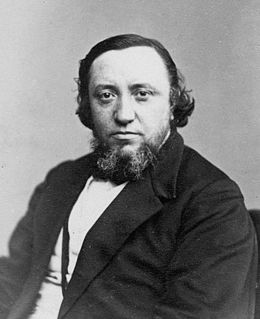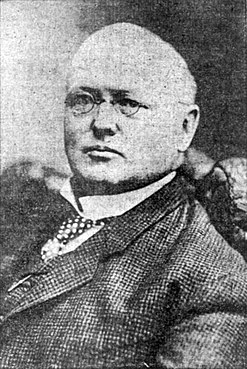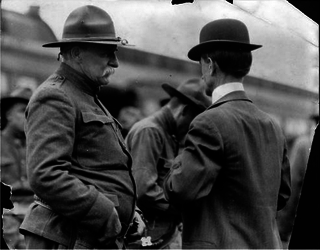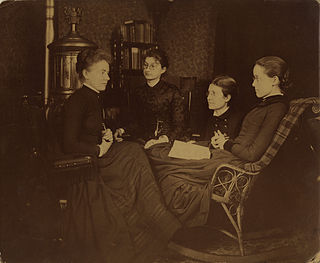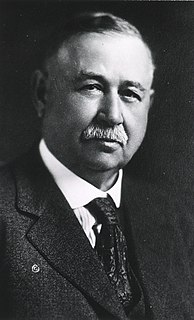Frantz Hunt Coe (1856–1904) was a Seattle physician, public official and educator.

Seattle is a seaport city on the West Coast of the United States. It is the seat of King County, Washington. With an estimated 730,000 residents as of 2018, Seattle is the largest city in both the state of Washington and the Pacific Northwest region of North America. According to U.S. Census data released in 2018, the Seattle metropolitan area’s population stands at 3.87 million, and ranks as the 15th largest in the United States. In July 2013, it was the fastest-growing major city in the United States and remained in the Top 5 in May 2015 with an annual growth rate of 2.1%. In July 2016, Seattle was again the fastest-growing major U.S. city, with a 3.1% annual growth rate. Seattle is the northernmost large city in the United States.
Coe was born November 28, 1856, in St. Charles, Illinois to Matthew Daniel Coe, M.D., and his wife Susan Farwell. He first attended the University of Michigan, where he graduated with an AB in 1879, and became a teacher. Shortly afterward, on August 17, 1880, he married Carrie Everett of Chelsea, Michigan.

St. Charles is a city in DuPage and Kane counties in the U.S. state of Illinois. It lies roughly 40 miles (64 km) west of Chicago on Illinois Route 64. As of the 2010 census the population was 32,974, and as of 2017 the population had dropped to an estimated 32,714. The official city slogan is "Pride of the Fox", after the Fox River that runs through the center of town. St. Charles is part of a tri-city area along with Geneva and Batavia, all western suburbs of similar size and relative socioeconomic condition.

The University of Michigan, often simply referred to as Michigan, is a public research university in Ann Arbor, Michigan. The university is Michigan's oldest; it was founded in 1817 in Detroit, as the Catholepistemiad, or University of Michigania, 20 years before the territory became a state. The school was moved to Ann Arbor in 1837 onto 40 acres (16 ha) of what is now known as Central Campus. Since its establishment in Ann Arbor, the university campus has expanded to include more than 584 major buildings with a combined area of more than 34 million gross square feet spread out over a Central Campus and North Campus, two regional campuses in Flint and Dearborn, and a Center in Detroit. The university is a founding member of the Association of American Universities.

Chelsea is a city in Washtenaw County in the U.S. state of Michigan. The population was 4,944 at the 2010 census.
With his father a physician, and not being quite satisfied on a teacher's salary, he went to medical school in 1884. (He is listed as a student in the Ann Arbor, Michigan address directory in 1886.) He graduated in 1888 with an M.D.
A medical school is a tertiary educational institution, or part of such an institution, that teaches medicine, and awards a professional degree for physicians and surgeons. Such medical degrees include the Bachelor of Medicine, Bachelor of Surgery, Doctor of Medicine (MD), or Doctor of Osteopathic Medicine (DO). Many medical schools offer additional degrees, such as a Doctor of Philosophy (Ph.D), Master's degree (M.Sc), a physician assistant program, or other post-secondary education.

Ann Arbor is a city in the U.S. state of Michigan and the county seat of Washtenaw County. The 2010 census recorded its population to be 113,934, making it the sixth largest city in Michigan.
A Doctor of Medicine is a medical degree, the meaning of which varies between different jurisdictions. In the United States, Canada and other countries, the MD denotes a professional graduate degree awarded upon graduation from medical school. In the United Kingdom, Ireland and other countries, the MD is a research doctorate, higher doctorate, honorary doctorate or applied clinical degree restricted to those who already hold a professional degree in medicine; in those countries, the equivalent professional degree is typically titled Bachelor of Medicine, Bachelor of Surgery (MBBS).
Coe and his wife promptly moved to Seattle, where in 1890 he is listed as partners with Gideon A. Weed "Physicians & Surgeons" at 606 Pike Street. A family researcher states that he was also surgeon for the Northern Pacific Railway and Seattle Traction Company and secretary of the Washington State Medical Society. He was Seattle's Public Health Officer in 1898.

The Northern Pacific Railway was a transcontinental railroad that operated across the northern tier of the western United States, from Minnesota to the Pacific Northwest. It was approved by Congress in 1864 and given nearly forty million acres of land grants, which it used to raise money in Europe for construction.
"He wrote in his journal, 'I am absolutely satisfied women make better principals than men and wish to open up a new era in Seattle schools.'" [1]
He served on the Seattle School Board from 1901 to 1904, his term ending with his death on July 16, 1904, in Seattle. Due to his prominence in the community and his enduring work for education, the Coe Elementary School was named after him in 1907.
Coe and his wife had two sons, Herbert and Harry, and one daughter, Francel (Frances?).


